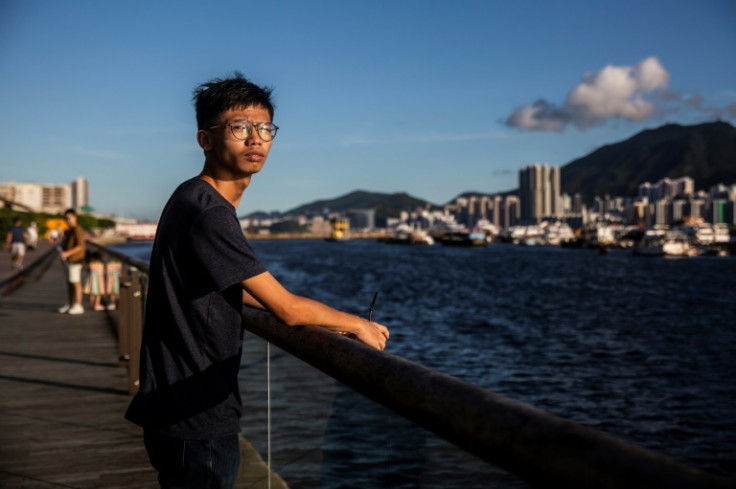Hong Kong Democracy Advocate Seeks Asylum In Britain

Hong Kong democracy activist Tony Chung said Friday he had fled to Britain because he could no longer endure supervision from authorities, who had pressured him to become an informant and limited his work options.
In 2021, Chung, then 20, became the youngest person to be imprisoned under Hong Kong's national security law -- imposed by Beijing after massive pro-democracy protests kicked off in 2019 in the former British colony.
He pleaded guilty to "secession" and was sentenced to three and a half years in prison.
Since his early release in June, Chung said he has lived in daily fear.
"I feared stepping out of my home, feared using the phone in public, and worried about the possibility of being detained again by national security police officers on the streets," he said in a statement posted on social media early Friday but dated December 27.
Chung said he was told by authorities that he was not allowed to work in "specific businesses", and that "national security police officers kept on coercing and inducing me to join them".
"They proposed providing informant fees, urging me to supply information about others as proof of my reformation and willingness to cooperate."
He said he got permission to leave Hong Kong by saying he wanted to go on holiday in Okinawa, Japan, and sought help once outside Chinese territory.
"As I publish this statement, I have safely arrived in the United Kingdom and have formally applied for political asylum upon entry," Chung said.
His post on social media included a photo of him holding a suitcase in front of a "UK Arrivals" sign.
Leung Kin-ip, deputy commissioner of Hong Kong's correctional services, condemned Chung for "evading responsibility and blatantly endangering national security".
Authorities have "issued a recall order and have contacted other law enforcement agencies to pursue him in accordance with the law", Leung said.
Asked whether national security police had turned Chung into an informant, Leung said he had "not heard of" such claims, declining to comment on other departments.
AFP has contacted the police for comment.
Chung was the convenor of the now-disbanded Student Localism, a small group he set up five years ago as a secondary school pupil to advocate for Hong Kong's independence from China.
Separation from China was then a fringe view in Hong Kong, although calls for self-rule became more vocal during the 2019 protests.
In 2020, Chung was nabbed by plainclothes police from a coffee shop opposite the US consulate, where he was allegedly planning to seek asylum.
Since October, he had "intermittently fallen ill" following his release from prison, and doctors diagnosed him with "significant mental stress", he said.
National security police had requested meetings every two to four weeks, Chung said, where he was asked extensively about his activities and people he met.
"Each meeting involved meeting at random locations, being ordered to board a seven-seater vehicle with closed curtains, and transported to unknown destinations."
Authorities compelled him to sign an order banning him from public speaking, and disseminating anything related to his conviction or deemed a danger to national security, Chung said.
He was also stopped from seeking legal assistance, with authorities citing a confidentiality clause under the security law.
Chung's departure follows fellow Hong Kong activist Agnes Chow's announcement this month that she had moved to Canada.
Chow said that, as part of a deal with police, she agreed to travel to mainland China for a tour promoting the country's achievements in return for permission to study abroad.
In his social media post, Chung wrote that police had asked him to go on a trip to mainland China, but that he had objected.
Calling himself a "Hong Kong exile", Chung said it was impossible for him to return home in the foreseeable future.
"I believe that as long as the Hong Kong people never give up, the seeds of freedom and democracy will sprout alive again."
© Copyright AFP 2025. All rights reserved.





















